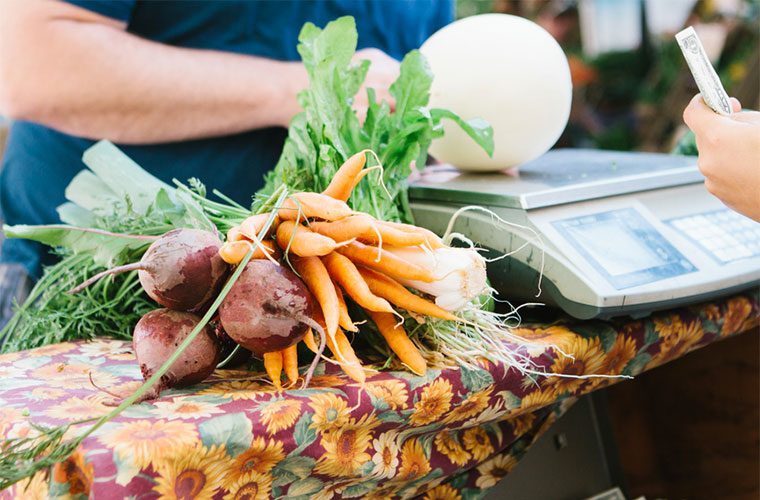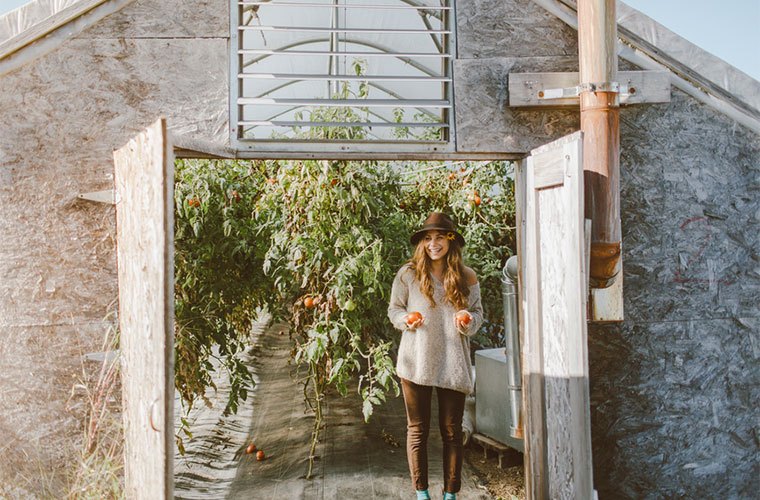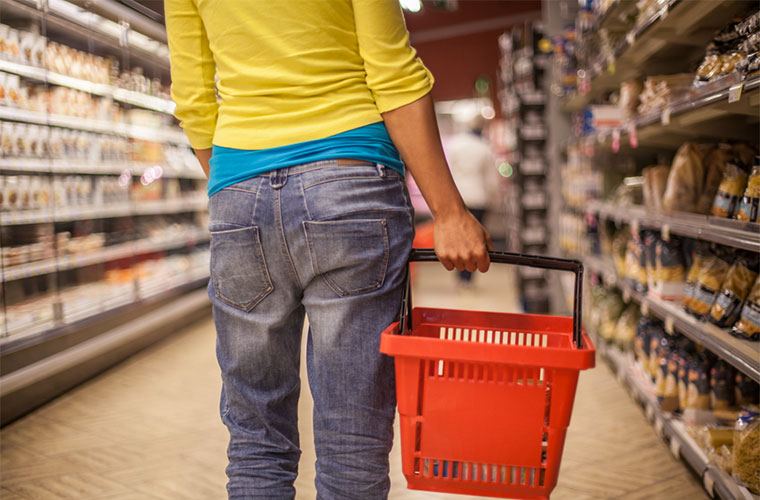Watch Out, Whole Foods: How Costco Became the Most Important Player in the Organic Produce Game
Whole Foods may win the prize for the most recognizable retailer when it comes to organic food, but the top honor when it comes to market share actually goes to...Costco.
Yup, the chain best known for its bulk stock and low prices reported $4 billion in organic food sales last year—that's billion with a B. Whole Foods, by comparison, racked up about $3.6 billion in certified organic sales.
The chain best known for its bulk stock and low prices sold $4 billion worth of certified organic food last year—that's billion with a B.
And this shift could have a major impact on you (and your healthy habits), even if you're not a card-carrying member. For one thing, it's proof that food shoppers across the board are prioritizing organics. And in other exciting news, it shows that it's possible to sell certified organic produce (COP) at a competitive price—crucial for closing the healthy food gap.
But perhaps most importantly, the mega-retailer is literally redefining the organics landscape—there are now Costco-owned organic farms to help the company keep up with demand. Plus, the brand is lending money to farmers to expand their output.
Does this mean that a Costco membership is about to be as coveted as an American Express black card?
Here, industry experts explain how Costco became the most important player in the certified organic game.

By following the money
Let's face it, dollars are a powerful motivator. When brands and retailers notice where people are allocating their cash, they'll make it a priority—and organics are definitely having a moment.
Heather Shavey, assistant vice president and general merchandise manager at Costco, says the retailer started zeroing in on organics five years ago because customers demanded it. "The spark in the shift was continuing and sustaining consumer demand for organics," she says. "Many [other retailers] thought it was a fad that would pass."
Organic quinoa at Whole Foods retails for $5.99. At Costco, it's $2.87. In other words, the savings are real.
Carlotta Mast, the head of content and insights for New Hope Network (the gatekeepers to the massively influential wellness trade shows Expo East and Expo West), has seen the explosion of organic sales firsthand. "Consumers are what ultimately is driving the demand, especially in certain food categories like dairy," she says. In other words: It's definitely not a passing food trend.

{{post.sponsorText}}
And Mast, who looks at the industry from all sides, says Costco has been a key player in raising the stakes across the board by making organics cheaper and therefore available for more people—it's starting to no longer be seen as a luxury. "They have really demonstrated a commitment to carrying certified organic products—and because they offer them at a competitive price and are able to meet consumer demand, it puts pressure on some of the other retailers," she says. (Your move, Trader Joe's....)
When you compare prices, organic quinoa at Whole Foods retails for $5.99. At Costco, it's $2.87. Organic chicken breasts are a dollar cheaper at the discount brand, and a loaf of organic whole wheat bread is about $1.50 less expensive. In other words, the savings are real.

By playing the long game
Costco has been so successful in moving COPs off its shelves that its suppliers can't grow the food fast enough. The company's solve? Buy plots of land and convert them into organic farms. (After all, less than 1 percent of farmland in the US is organic—which simply isn't enough to keep up with demand.) The mega-retailer's also buying a poultry farm in Nebraska, set to open in 2019. When it's up and running, it's expected to supply one-third of the chicken sold in stores.
And that still isn't quite enough to hit its sales goals, so Costco's also supporting independent farms transitioning to organic by fronting some of the farms' and handlers' expenses to make them USDA-approved.
Costco has been so successful in moving COPs off its shelves that its suppliers can't grow the food fast enough. The company's solve? Buy plots of land and convert them into organic farms.
According to Sam Jones-Ellard, a public affairs specialist for the USDA, it's a complicated, 36-month process. "First a farm or handler must reach out to one of our accredited certifying agents and come up with an organics plan, which basically covers everything about the operation," he says. Once that's approved, the next step is an on-site inspection. If given the thumbs up, only then is the seal awarded—but surprise inspections aren't out of the ordinary, and the certification only lasts a year.
It's hardly a selfless mission—don't forget that ultimately, Costco will profit off of these investments—but what it does mean is that farmers get a big boost and a broader range of consumers will be able to access organic produce.

By focusing on big brands instead of indie producers
Costco's rise in the organics game hasn't been a godsend for every brand, though—smaller companies can get lost in the big-box shuffle, since the retailer's strategy is to keep prices competitive by moving a lot of product.
Smari Asmundsson, founder of organic Icelandic yogurt line Smari, says it's hard for smaller companies to meet the discount store's demand. "We were in 16 Costco stores for about a year, but then there was a vanilla shortage so we had to raise our prices," he says. Smari's new price point—$2.50 a pop—was too high for Costco, so the yogurt is no longer on its shelves. Instead, Asmundsson says he's focused on all-natural retailers, like—you guessed it—Whole Foods.
"The prices [for organics] are usually a little bit more expensive, but that’s just because of the cost of making a natural product," Asmundsson says. "Our margins are not as high as more established companies—we couldn't make [selling at such a massive scale] work financially." It's a hard lesson for many brands: Unless you're ready to scale up your production, selling at Costco might not be in your best interest. (It also brings up the bigger question of whether this race to lower prices ultimately hurts start-ups that simply can't compete—if you expect your organic yogurt to cost less than $1.50, would you ever consider spending more for someone doing it on a small scale?)
Smaller companies can get lost in the big-box shuffle, since the retailer's strategy is to keep prices competitive by moving a lot of product.
The mega-store does support growing companies in other ways, though. For one, it promotes brands that aren't ready to meet its demand (yet!) but are still doing very cool things when it comes to farming and sustainability by featuring them in the Costco magazine, which goes out to members. One example: home-growing kit company Back to the Roots, which was recently featured on the cover—despite the fact that its products are not in a single Costco store.
Back to the Roots co-CEO Alex Alejandro says his company is in talks with the retailer, making slow, cautious steps toward being stocked on its shelves. The hope is that with more brand awareness, Back to the Roots will be ready for Costco soon. The retailer sees the magazine feature as a way to invest early in fledgling brands, for a long-term payoff.
So it sounds like the retailer has learned a thing or two from running its own farms (plant a seed, wait for it to grow), which is creating more shopping options for health-minded shoppers—of all budgets.
If you still can't quit your Whole Foods habit, here's what you can expect to see on their shelves in 2017. And have you heard about the potentially inflammatory ingredient that just got banned from organic food?
Loading More Posts...